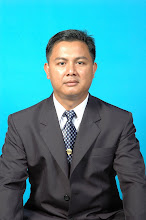| |
r Alwi (right) and Mohammad at the public lecture. |
"To go to the Syariah Court and claim that the child, who is two or three years old, has been converted to Islam, what does it mean? You convert a two-year-old child or five-year-old to Islam, it doesn’t really make sense when you look at this phenomena from the texts and guidelines of Islam," he said.
Mohammad said conversion to Islam was a conscious and deliberate act on the part of the individual requiring a comprehension of the decision made by the person converting.
"(Conversion to Islam) calls for a profession in your words and an affirmation in your heart. Can you expect a child of five years (to have that). Most of these ‘forced conversions’ really arise over those issues (divorce and custodial battles) and I think we need to depart from that," he said.
"The child should grow up and be an adult, and be given the freedom to choose his or her religion. Before they reach the age of majority, any religion inflicted on the child is not really valid. A religion has to be embraced with a deliberate understanding by a competent person. Children are not competent," added Mohammad, who called for a change to the current laws."... We need to add something to ensure it does not limit the freedom of the child when he or she becomes an adult."
"Islam protects non-Muslims when it comes to basic rights, and it does not differentiate between Muslims and non-Muslims. It is for all," added Mohammad, who responded to questions after a talk on Islamic extremism by former Indonesian foreign minister Dr Alwi Abdurrahman Shihab in the IAIS centre here yesterday.
Alwi said such issues (conversions) were unknown in Indonesia."I do not really see any such phenomenon (forced conversions) in Indonesia today. Muslims might sometimes raise complaints over the Christian missions, but today I think we are not very concerned over forced conversions. I do not know whether there are isolated incidents but we are proud to be a nation respectful to other faiths," he said.
Alwi then called on the media to report more objectively on Islamic matters to present a fairer picture of the religion.
"The media likes to exaggerate and cover all kinds of protests and radicalism because this is the news. The moderate voices are not attractive to people. One person protesting the US at the embassy is considered good news for the media, but not 10 people trying to help others in an Islamic way."
The media is very important."So, many moderate voices are not being covered by the media because this is not considered good news for commercial purposes. The ‘good news’ is what is against the norm," said Alwi who cited the Indonesian situation.
"The reality in Indonesia is that although people are worried about extremism and radicalism in Indonesia, the outcome of the Indonesian elections is that Islamic parties are not showing good results.
"The secular parties are showing the best results and that is the objective condition of Indonesia. The radicals are not accepted by the Indonesian silent majority," said Alwi."The media always likes to exaggerate. So, talking about Indonesia, the radical Muslims are not gaining ground, because this is the will of the people," he added.



Tiada ulasan:
Catat Ulasan